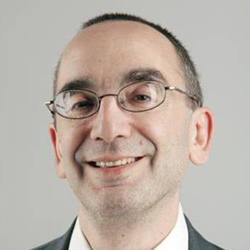
Meet the Resistance: A Coalition to Fight for the Income Tax and State Services
-
Joe Wertz

Provided
The Oklahoma Policy Institute is organizing a coalition to fight for state-funded services, and resist calls to reduce or eliminate the state income tax, reports the Tulsa World. The coalition hasn't been formalized yet, director David Blatt (above) said.
Talk of tax cuts and a restructured state tax code have been increasing.
And the resistance, it appears, is organizing.
The Tulsa World’s Barbara Hoberock reports the Oklahoma Policy Institute is leading the budding “coalition”:
“We are beginning to work with other organizations about how to develop some kind of common messages and strategies to try to make the case for fair and adequate funding of public services,” David Blatt, director of the Oklahoma Policy Institute, told the paper.
The Oklahoma Policy Institute — a nonprofit research outfit that promotes “equitable, responsible, and sustainable” fiscal policies — is worried that recommendations made by legislative panels will hurt poor and moderate-income Oklahomans, Blatt told the World.
Specifically, Blatt and Oklahoma Policy worry efforts to reduce or eliminate the state income tax will shift the tax burden to the poor, and that reduced revenues will endanger funding to government services.
The coalition hasn’t been formalized, Blatt emphasized, but the Oklahoma Policy Institute is hiring an outreach coordinator to gather and organize members around a “shared agenda” of “ensuring adequate funding of public services.”
The resistance already has some influential supporters, like the Oklahoma State School Boards Association, and potential supporters like the Oklahoma Education Association and the Oklahoma Hospital Association.
The coalition’s mission also coincides with those of the Oklahoma Institute for Child Advocacy and the Oklahoma Public Employees Association, which lamented to the World.
“We have a lot to make up for. State employees are 20 percent below market. There has been no pay adjustment since 2006. We have crumbling infrastructure,” OPEA spokeswoman Trish Frazier said.
